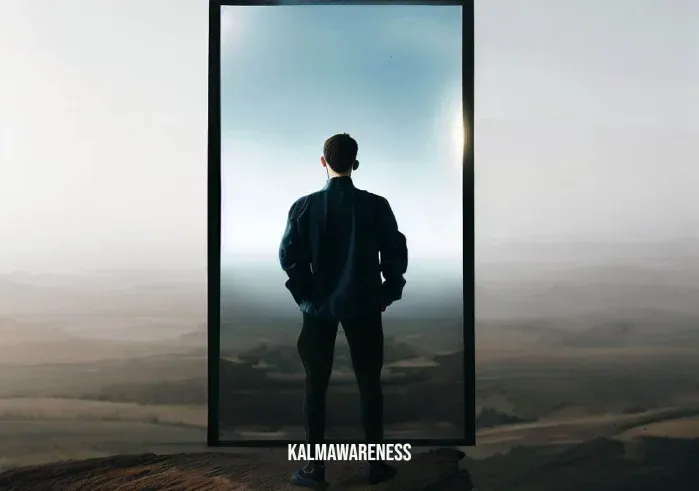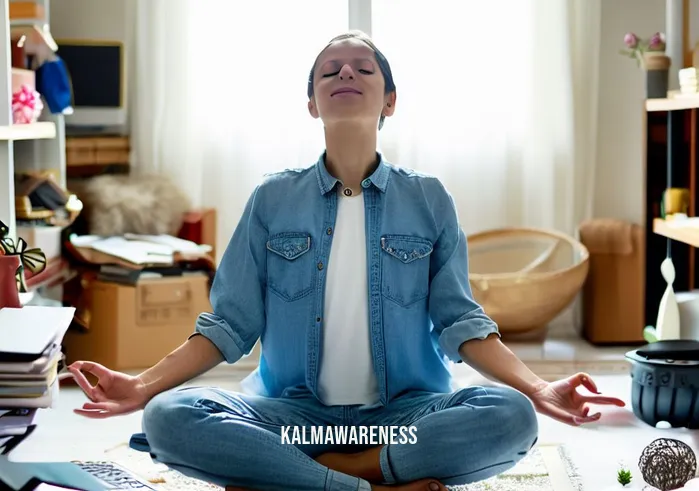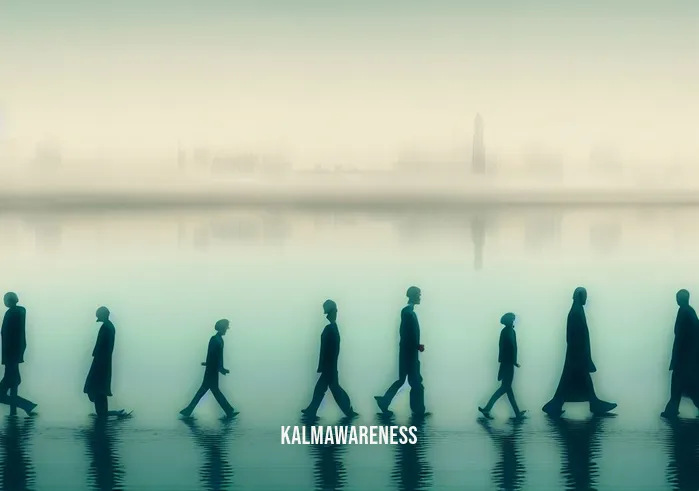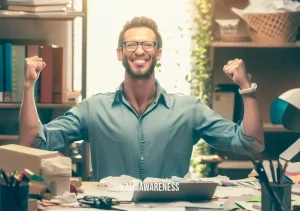Why You Should Take a Long Look in the Mirror: A Journey into Self-Reflection and Awareness
Have you ever stood in front of a mirror, allowing yourself to really see who you are? It’s time we discuss why you should take a long look in the mirror, a process that goes far beyond mere physical reflection.
“The face is the mirror of the mind, and eyes without speaking confess the secrets of the heart.” – St. Jerome
Understanding Reflection: More than Meets the Eye
The experience of looking at our reflection is unique to each individual. Some may see an unfamiliar face, while others may experience the mirror effect where they perceive themselves in ways that may differ from reality.
Understanding this perception is crucial in unlocking our awareness and kickstarting personal growth. However, it is not uncommon for people to ask: When you look in the mirror, what do you see?
The Mirror and Self-Perception
Our perception of self when we look into a mirror can be much more than mere vanity or checking our appearance. It’s a conscious and subconscious interaction with our reflected self, offering us a different mirror perspective and serving as a potent tool for introspection.
Through this, we are essentially pointing at ourselves in the mirror, analyzing our reflection and drawing comparisons between our physical appearance and how we feel on the inside.
The Art of Introspection and Observation
- Antar Mouna or “inner silence” in Sanskrit, is an exercise that encourages introspection. This process can guide us to awareness of our environment and ourselves, ultimately becoming aware of awareness.
- Practice the presence meditation to tune into the present moment, to align our senses with the surrounding environment, leading to profound self-awareness.
Observing the Self: The Path to Personal Growth
When we check out our mind, we open the doors to sociological mindfulness, enhancing our understanding of self and society. This process empowers us to answer the question: What is the first thing you notice about a person?
Looking in the mirror encourages us to focus on self-growth, reminding us that when we look into the mirror, we don’t just notice the physical self but also the mental, emotional, and spiritual aspects.
The mirror is indeed a powerful tool for introspection and self-awareness, facilitating a deep dive into personal growth. However, understanding our reflection is just the first step in this journey of self-discovery.
I invite you to continue to the next part of the article, where we’ll further explore the role of the mirror in our personal and spiritual growth. We’ll discuss the phenomenon of the ‘observer self’, delve into the meaning of ‘self-reflecting mirror’, and discover how slowing down can enrich our lives.

The Role of the Mirror in Personal Growth
When you engage in the practice of standing in front of a mirror, you aren’t merely gazing upon your reflection. This process can be a powerful tool for growth, healing, and transformation. The question of why we should take a long look in the mirror isn’t merely about examining physical appearances. It pertains to introspection, understanding, and nurturing our authentic selves.
The ‘Observer Self’ and the Power of Objectivity
Developing the ‘observer self’ involves cultivating a part of our awareness that can observe our thoughts, emotions, and behaviors with detachment. This can bring about a transformative shift in perspective, fostering understanding, acceptance, and compassion towards ourselves and others.
The process of observing oneself can be enhanced through several mindful practices, like the Mirror Activity, which involves intentional observation and self-reflection. This allows us to become the Observer Self, an impartial observer who watches without judgment, fostering acceptance and understanding.
Nurturing Your ‘Observer Self’: A Five-Step Approach
- Stillness: Create a quiet space where you can be with yourself. This allows you to cultivate awareness and tune into your inner world. Slow down your thoughts and invite calmness to your mind. Our guide on how to slow down to enjoy life more provides helpful tips for this step.
- Presence: Be fully present in the moment. Stay attuned to your experiences without getting lost in thoughts of the past or future. For guidance, refer to our post on presence meditation.
- Observation: Allow yourself to objectively observe your thoughts and feelings without judgment or the need to change anything. It’s essential to check out your mind without being consumed by what you find.
- Reflection: Reflect on your observations and glean insights about yourself. Consider your feelings, thoughts, and reactions from a detached perspective. Looking into the mirror without judgment can aid in this process.
- Integration: Incorporate your insights into your everyday life. Use your newfound understanding to make changes that foster growth and self-improvement.
The ‘Self-Reflecting Mirror’: A Catalyst for Personal Growth
The ‘self-reflecting mirror’ concept encapsulates the transformative potential of self-reflection. It suggests that as we look at our reflection, we also see our inner selves, revealing hidden aspects of our personality and consciousness.
Understanding this concept can enable us to see ourselves from a fresh perspective. By engaging with our self-reflecting mirror, we open the doors to deeper self-awareness and personal growth.
The ‘Self-Reflecting Mirror’: What It Reveals
The self-reflecting mirror can reveal:
| Aspect | Description | |
|---|---|---|
| 1. | Our Values | By observing our reactions and feelings, we can understand what truly matters to us. |
| 2. | Our Strengths | Positive feelings towards certain traits in our reflection can signal our strengths. |
| 3. | Our Areas for Improvement | Negative reactions can point to areas where we could grow and improve. |
To continue your journey of self-discovery and personal growth, join me in the next part of the article. We’ll delve deeper into the importance of slowing down and embracing stillness, and how mindfulness can enhance our observational skills. Stay tuned for a holistic exploration of introspection and the transformative power of the mirror.
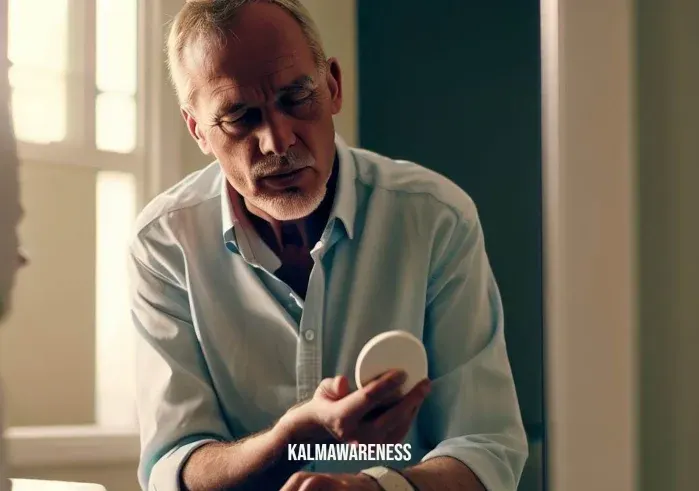
Observing Stillness and the Mirror of Mindfulness
A long look in the mirror might initially seem like a simple, mundane activity. However, when approached with a mindful, introspective lens, it becomes a gateway to understanding ourselves better, unravelling our emotions, thoughts, and experiences. We should take a long look in the mirror, not just to see our physical reflection, but to explore our internal world.
The Power of Stillness
Engaging in stillness is essential in the process of self-reflection. It offers us a chance to silence the constant chatter of our minds, enabling us to focus on the present moment and tune into our inner selves. As Pico Iyer famously said, “In an age of speed, I began to think, nothing could be more invigorating than going slow.”
In a similar vein, our article on time winding down explores the concept of slowing down, emphasizing the benefits of finding peace and clarity within stillness.
Mindfulness: Observing Ourselves Non-judgmentally
“Mindfulness is the aware, balanced acceptance of the present experience,” as stated by Sylvia Boorstein. This acceptance includes our feelings, sensations, and their unfolding process. Incorporating mindfulness into our mirror gazing practice allows us to see ourselves clearly and objectively.
Our blog on mindful looking offers insights on enhancing observational skills through mindfulness. It explores how mindful observation can lead to improved self-awareness and understanding.
Gazing Into the Mirror: Embracing Our Inner Vision
When we look into a mirror, we’re not only seeing our external reflection, but we’re also opening a window to our inner selves. Looking at ourselves through this lens can be transformative. As William Makepeace Thackeray put it, “The mirror is a sacred object that reflects our innermost being.”
When we look into a mirror mindfully, we become aware of our true selves. It’s not just about our physical appearance, but more about introspecting and acknowledging our emotions, thoughts, and experiences. This inner vision provides valuable insight into our authentic selves, thereby fostering personal growth.
The Mirror as a Tool for Self-Reflection
“Mirrors should reflect a little before throwing back images,” stated Jean Cocteau, highlighting the reflective capacity of mirrors beyond their literal function. They offer an opportunity to see ourselves from an entirely new perspective, illuminating hidden aspects of our personalities and identities.
When we self-reflect using a mirror, we’re not just viewing our exterior but engaging with our interior. This encounter can often reveal deep-seated emotions, unconscious thoughts, and unseen aspects of our personalities.
Join us in the next part of the article as we explore the concept of ‘mirror effect’ and how it impacts our self-perception. We’ll also delve into various mindful practices that can help harness the transformative power of the mirror. Be prepared for a deeper dive into understanding why you should take a long look in the mirror.

Beyond Reflection: Unraveling the Mirror Effect
The concept of the mirror isn’t merely limited to a reflective surface, but extends into the realm of psychology and self-perception. This chapter further elucidates why we should take a long look in the mirror by diving into the intriguing ‘mirror effect’ and mindful practices that optimize our reflective experiences.
The Mirror Effect: Uncovering the Hidden Self
The mirror effect is a psychological phenomenon that uses reflection as a means of fostering self-awareness and personal growth. As Charles Horton Cooley beautifully expressed, “I am not who you think I am; I am not who I think I am; I am who I think you think I am.” This sentiment delves into the heart of the mirror effect, which illustrates how our self-perception often hinges on how we believe others perceive us.
Why Should We Recognize Ourselves in the Mirror?
There are moments when we look in the mirror and don’t recognize ourselves, leading to feelings of confusion and estrangement. This sensation often signifies a disconnection from our true selves. Carl Jung captured this sentiment when he said, “Who looks outside, dreams; who looks inside, awakes.” This perspective points towards the crucial role of self-recognition and introspection in understanding ourselves more intimately.
Our post on why do I not recognize myself in the mirror sheds more light on this curious phenomenon and provides valuable insights to better understand it.
Mirror Meditation Practices
Harnessing the potential of the mirror for self-improvement requires more than just a casual glance. We need to engage with ourselves deeply and mindfully. It’s a meditative process that involves observing without judgment, embracing the present, and cultivating self-acceptance.
We have a comprehensive guide on Dalai Lama Meditation Instructions that offers structured meditation practices to enhance your mirror gazing experiences. These methods are designed to bring tranquility to the mind, leading to a more profound understanding of oneself.
| Steps for Mirror Meditation | |
|---|---|
| Step 1 | Start by finding a quiet and comfortable space where you can be alone with your reflection. |
| Step 2 | As you gaze at your reflection, pay attention to your thoughts and feelings. Let them flow freely without judgment. |
| Step 3 | Focus on your breathing, letting it anchor you to the present moment. |
| Step 4 | Observe any changes in your emotions or thoughts as you continue to gaze at your reflection. |
| Step 5 | Use affirmations to promote self-love and acceptance. Repeat these affirmations silently as you look at your reflection. |
In the words of Thich Nhat Hanh, “Hope is important because it can make the present moment less difficult to bear. If we believe that tomorrow will be better, we can bear a hardship today.” As we conclude this chapter, remember that taking a long, mindful look in the mirror is an act of hope. It’s a journey of self-discovery that leads to personal growth and an enhanced understanding of oneself.
In the next part of the article, we will focus on the role of awareness and self-perception in shaping our mirror experiences. We’ll also delve into how our environment influences our self-perception, thereby enriching our understanding of why we should take a long look in the mirror.
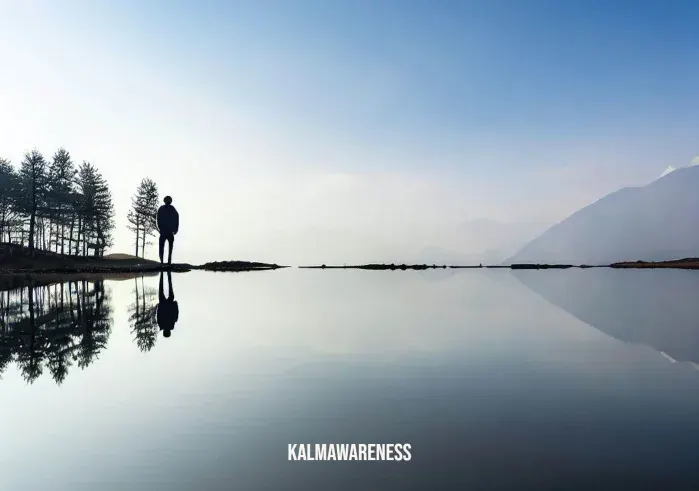
The Parallels of Perception: Looking Inwards and Outwards
Exploring the realms of reflection and introspection, we now venture into the nuances of how awareness and self-perception define our experiences when we take a long look in the mirror. Let’s delve into how our surroundings shape our self-perception and the pivotal role of ‘awareness of awareness’.
Embracing the Environment: An External Reflection of Self
When looking into a mirror, our perception of self isn’t only influenced by internal dialogues but also by our surrounding environment. After all, a mirror reflects more than just us; it offers a snapshot of our environment as well. The link between our self-perception and our environment is beautifully encapsulated in the phrase, “we are a product of our environment.”
Our article on what do we call awareness of our environment and ourselves? sheds more light on this fascinating intersection between self-awareness and environmental influences.
Awareness of Awareness: The Observer Within
When we say we should take a long look in the mirror, it is more than just observing our physical reflection. It extends to our inner being and the ‘observer’ that dwells within. This concept, referred to as awareness of awareness, is a crucial aspect of mindful living. It allows us to be the ‘watcher’ of our thoughts and emotions without getting entangled in them.
By developing an awareness of awareness, we can better manage our reactions and behaviors, leading to a deeper understanding and acceptance of self. It’s an essential tool for those who want to cultivate mindfulness and enjoy a deeper connection with their inner self.
Self-Perception and its Sociological Implications
Our self-perception, shaped by various societal factors, profoundly impacts how we interpret our reflection. Understanding the relationship between societal norms and our self-perception is a step towards a more authentic self-view.
Sociological mindfulness entails awareness of how societal forces shape our identities and perceptions. By becoming more mindful, we can liberate ourselves from these societal constraints and establish a more authentic and individualistic self-perception.
Slowing Down and Seeing More: Mindful Looking
To truly comprehend our reflection, we need to slow down and enjoy life more. A rushed glance at the mirror seldom allows us to engage in profound self-reflection or introspection. On the other hand, a more deliberate and mindful look can open the doors to profound insights.
The practice of mindful looking promotes more present and observant engagement with our environment and ourselves. By slowing down, we allow ourselves the opportunity to truly see and engage with our reflection.
As we journey further into the realm of self-reflection, consider the words of Chinese philosopher Lao Tzu, “Knowing others is wisdom, knowing yourself is Enlightenment.” This encapsulates the core essence of why we should take a long look in the mirror.
The next part of the article will delve into the power of self-reflection, the role of the observer self, and how these aspects are integral to personal growth. Stay tuned as we continue to unravel the deeper significance of reflection and introspection.
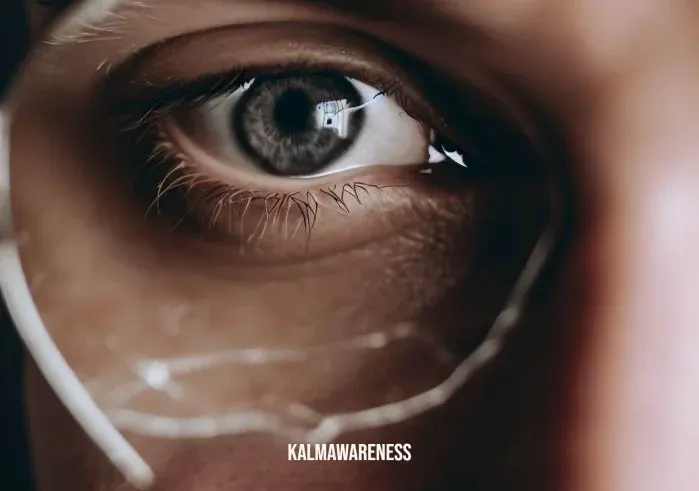
The Power of Self-Reflection: An End and A Beginning
As we take a long look in the mirror, we realize that it’s not just about surface level scrutiny. Instead, it is a reflective practice that engages us in an ongoing conversation with our deepest selves. Let’s embrace this final chapter, not as an ending, but as a gateway to new beginnings in the quest for self-awareness and personal growth.
The Observer Self: Bridging Inner and Outer Realities
“Should take long look mirror” – a phrase with profound implications. It encourages us to connect with our inner observer, an aspect of our consciousness that watches over us without judgment or bias. The observer self encourages us to see our actions, thoughts, and emotions from a neutral standpoint, fostering self-awareness and understanding.
The deeper we dive into self-reflection, the clearer the observer within us becomes, illuminating our path towards self-awareness and inner peace.
Mirroring Personal Growth: Self-Reflection as a Tool
Our reflective journey doesn’t end when we step away from the mirror. In fact, it’s just the beginning. Just like we compare ourselves to an object in a speech, mirrors serve as a metaphorical reminder of our ever-evolving selves.
In personal growth, constant self-reflection is crucial. As we navigate through life, our experiences shape us. Pausing to reflect on these changes allows us to consciously steer our personal growth and evolution.
Mindful Moments: Embracing the Here and Now
What if the mirror is more than a reflective surface? What if it’s a reminder to be still and know that I am? The practice of mindfulness teaches us to be fully present in the moment.
Embracing mindful moments as we take a long look in the mirror could transform a simple act into a powerful self-reflection ritual. By doing so, we don’t just observe our physical reflection, but we also witness our thoughts and emotions, aiding us in our journey towards self-awareness.
Conclusion: A Never-Ending Journey
As we draw this exploration to a close, remember that when we look into the mirror, we’re not just seeing a static reflection. Instead, we’re engaging with a dynamic self, shaped by our experiences and perceptions.
Renowned author C. JoyBell C. beautifully captures the essence of this journey, “The person in life that you will always be with the most is yourself. Even when you are with others, you are still with yourself. When you wake up in the morning, you are with yourself, laying in bed at night you are with yourself, walking down the street in the sunlight you are with yourself. What kind of person do you want to walk down the street with? What kind of person do you want to wake up in the morning with? What kind of person do you want to see at the end of the day before you fall asleep? Because that person is yourself, and it’s your responsibility to be that person you want to be with.”
This is the conclusion of our exploration into the depths of self-reflection and introspection. It doesn’t signify an end, but rather a new beginning. We encourage you to continue delving deeper into the topics touched upon in this article and other insightful pieces available at KalmAwareness. Happy exploring!
